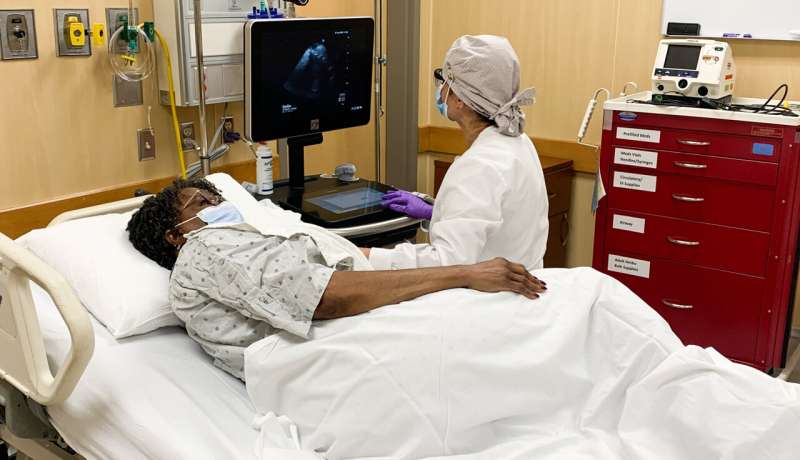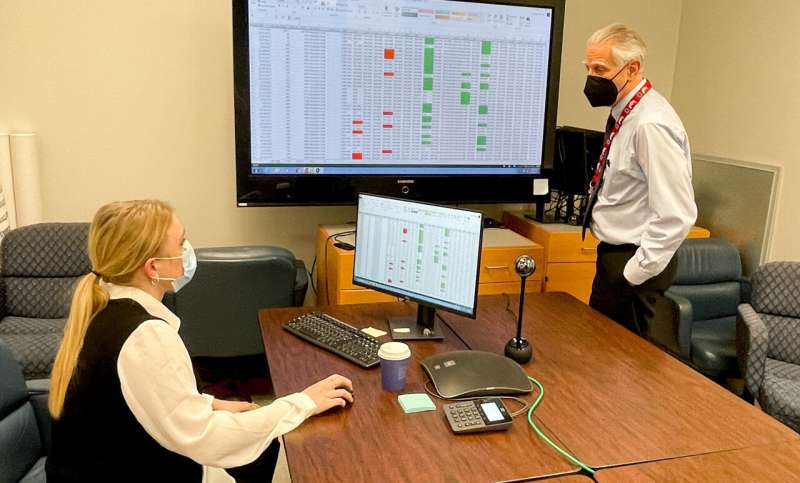Study finds higher risk in families of Black patients with inherited heart muscle disease

Many of those diagnosed with heart failure don't know that heredity may have contributed to their condition, a trait that they can pass on to their children as well. The disease, called dilated cardiomyopathy, often goes unnoticed and undiagnosed until it becomes life-threatening, but now a new study by researchers at The Ohio State University Wexner Medical Center published in the Journal of the American Medical Association examines the prevalence of this genetic trait among family members of those diagnosed with the disease.
"For every patient who is diagnosed with dilated cardiomyopathy, there are members of their family who are at risk," said Dr. Ray Hershberger, a cardiologist and director of the Division of Genetics at The Ohio State University Wexner Medical Center. "That's why it's critical to identify those who have the gene mutations, screen them regularly for disease development and begin treatment as early as possible."
Dilated cardiomyopathy results in an enlarged left ventricle and impairs the heart's ability to pump blood to the rest of the body. While the disease can be brought on by things like heart attack or artery disease, those with this inherited version are often asymptomatic until the disease is in advanced stages. The study tested parents, siblings and children of patients diagnosed with idiopathic dilated cardiomyopathy, which is when the disease has no known cause. Based on the rate of disease in relatives who were tested, researchers estimate the prevalence of disease is about 30 percent overall. When broken down by self-identified race, about 39% of Black patients and 28% of white patients had at least one first-degree family member with DCM.
"We clearly document that Black patients have greater risk of dilated cardiomyopathy, and their family members are also more likely to have early signs of the disease," Hershberger said. "There are effective medications and medical interventions that greatly slow disease progression if it develops, but we must first screen those at highest risk to identify those who are predisposed to this condition."

The study also found that family members of those diagnosed with dilated cardiomyopathy under the age of 34 were at twice the risk of having signs of cardiomyopathy than family members of those diagnosed at an older age. While treatments are effective when these patients are identified, researchers hope that therapies will be developed in the near future to correct the gene mutations that cause dilated cardiomyopathy before they ever affect the health of those who inherit them.
More information: Gordon S. Huggins et al, Prevalence and Cumulative Risk of Familial Idiopathic Dilated Cardiomyopathy, JAMA (2022). DOI: 10.1001/jama.2021.24674





















